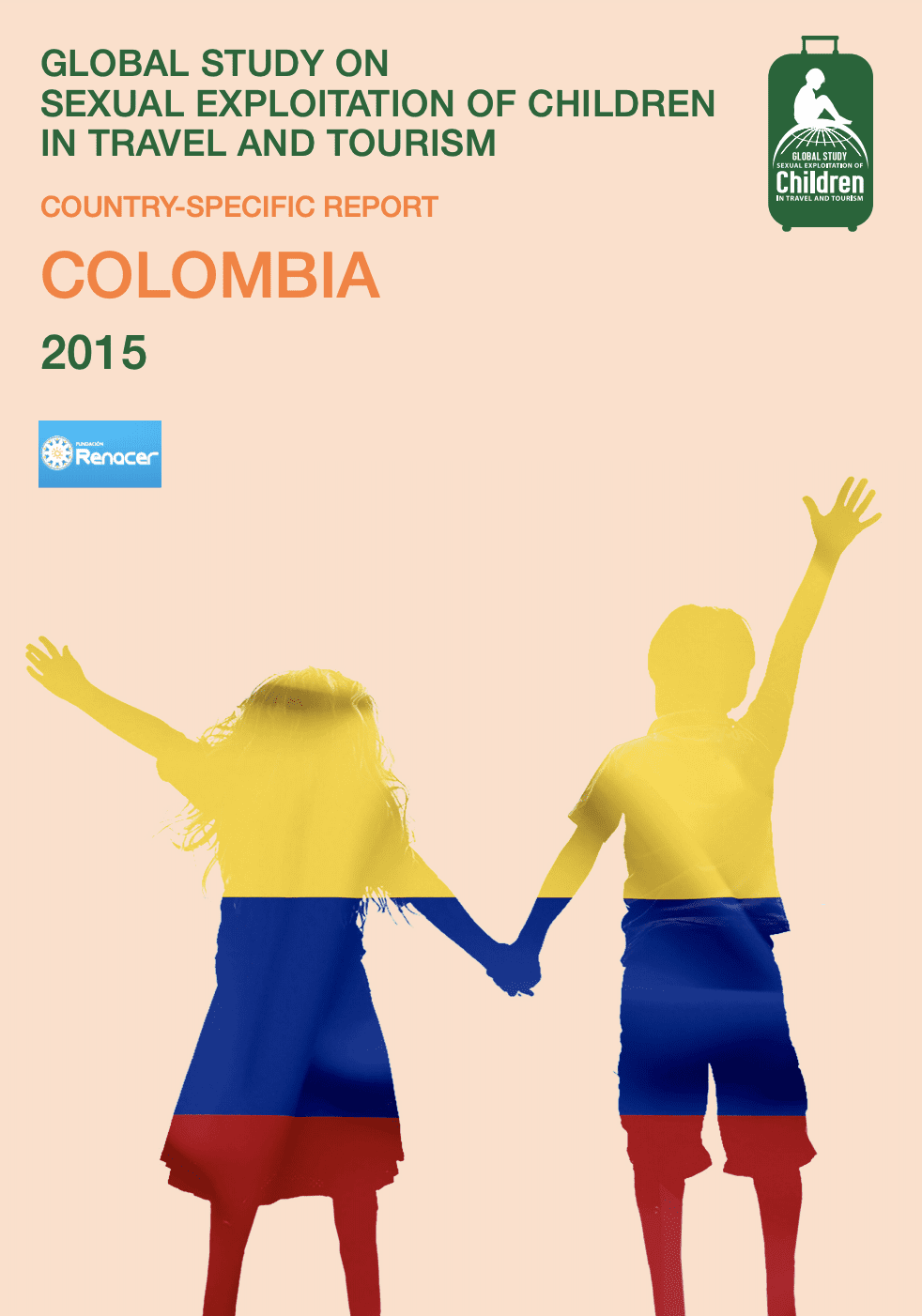
Global Study on Sexual Exploitation of Children in Travel and Tourism – Colombia
The commercial sexual exploitation of children in travel and tourism is a reality that affects Colombian children living in different locations, beyond the cities and sites that are nationally and internationally renowned as touristic destinations. This study shows how the growth of tourism in three regions of the country, based, more or less explicitly, on political perceptions of development, has fostered conditions that favour CSEC. However, tourism as an industry and as a social and economic activity is neither the only nor the determining factor to explain the presence of this crime. In each region, particular worldviews, interests, cultural or collective traditions combine with the activities of individuals that use the bodies and lives of children as a means to pursue their criminal activities. These and other relevant concepts are discussed in chapter 2.
Methodologically, as we discuss in chapter 3, this study resorted to a social ethnographic approach. This approach explores the everyday lives of a given group of individuals, in order to capture the ways in which they perceive and understand their reality, whilst focusing on an element of their complex worlds, which in this case was the commercial sexual exploitation of children. As part of this process, we conducted direct observations in different locations, in order to determine whether these were used as settings to contact victims or commit crimes. These included many “traditional” locations, but we remained open to explore new sites, not identified in previous research.
At the same time, we interviewed different social actors and some victims. Many of the former became key informants. We also interviewed public officials whose mandated role was directly related to assisting or protecting children. Victims were not considered actors in a strict sense, since they cannot be held responsible — much less indicted- for participating in the production of the dynamics of CSEC.
Considering that our research involved people below the age of 18 years, who are entitled to special protection under the Constitution and other Laws and who are additionally being victims of a crime that violates their fundamental rights, we adopted as an ethical principle for our research a commitment to provide, in parallel to our inquiries about their reality, a concrete set of alternatives for the protection and restoration of the rights of victims, which would allow them to exit the ominous situation in which they find themselves.
For the conceptual and legal frameworks, which are presented in chapter 4, we based our analysis on a desk review. We developed two sets of categories for the analysis of our findings: the first set includes the empirical data gathered in the field using pre-established categories, which were developed based on the previous experience of Renacer with this type of research process; the second refers to data gathered using emerging analytical categories, based on unanticipated findings which add new dimensions to our understanding of the problem, broaden our perspective on the issue and lead us to adopt more complex models. These categories are presented in chapter 5 of the report.
Chapter 6 describes the characteristics of the victims that were interviewed for this study, highlighting only some elements to provide a general overview of their profile. Chapter 7 incorporates some of the perceptions and opinions held by representatives of state bodies working on prosecution, prevention and victim assistance. These offer an overview of the actions and difficulties the State faces in trying to address CSEC in a comprehensive manner within each of the regions we studied.
Finally, the last section of this report summarizes the main conclusions of the study and offers some recommendations based on the findings from our fieldwork and from the interviews we conducted with public officials.
Fundación Renacer would like to thank Defence for Children-ECPAT Netherlands for funding this research and the State officials and citizens who participated as informants in the different municipalities where the study was conducted for their valuable contributions. We also thank the professional team at Renacer that worked on the field and contributed to the discussions where the results were analyzed. Without them all, this study would not have been possible.
Finally, we thank the children who agreed to be interviewed for our research. We know that, despite the difficult situations they have undergone, they preserve the will to fight to build a better future and the generosity to share their experiences in order to prevent other children from falling into the traps of commercial sexual exploitation and trafficking. To them, we are endlessly grateful and express our utmost respect and recognition.
Read more here.
